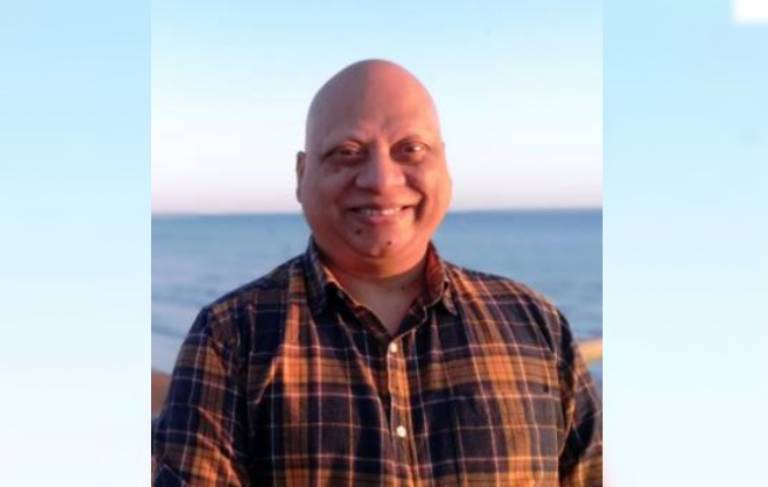Dr Mohammad Shamsudduha
Dr Mohammad Shamsudduha, who goes by ‘Shams’, is Associate Professor in Humanitarian Science in the UCL Institute for Risk and Disaster Reduction (UCL IRDR).

1 November 2021
When did you take up this position? What was your position beforehand?
I started this new academic role at UCL IRDR in June 2021. Before that I served as Lecturer in Physical Geography at the University of Sussex. I am still holding an Honorary Research position at Sussex and continuing to collaborate with the Sussex Sustainability Research Programme.
Tell us about your role.
At UCL IRDR, I am currently leading a new multidisciplinary BSc programme called the Global Humanitarian Studies. We received the first cohort of students this year. This is quite an exciting opportunity as it is one of the very few undergraduate programmes in the world dedicated to developing future humanitarian leaders and scholars. It is the kind of bold initiative that makes UCL so special as a visionary, leading academic institution in the world.
My relationship with UCL has been very dynamic as it has changed over time. I came to UCL back in 2007 from Bangladesh as a doctoral student. After successful completion of my doctoral study at UCL Geography, I joined UCL IRDR as a Research Fellow where I spent more than seven years (2012-2019). During this long tenure at UCL IRDR, I held a number of research positions that enabled me to work across the campus with researchers from other UCL departments.
I also held a Teaching Fellow position at UCL Geography while I continued to hold my office at UCL IRDR. This long journey from a research student to a leading academic at UCL has transformed my relationship with the institution. As time passed, my connection and affection for UCL equally grew stronger. Finally, a brief period of separation (2019-2021) and return this year ultimately consolidated the bond with UCL that I have always felt in me for this beloved place.
What are some of your favourite things about working in the department? How have you found it different to previous jobs?
I find my new academic role at UCL IRDR far more challenging but equally exciting. I particularly like the opportunity to demonstrate my leadership skills, and I thank my colleagues for believing in me and supporting me in every step of the way. I love to work with UCL IRDR because of my very supportive colleagues and its cultural diversity, and interdisciplinary research environment that always encourages me to think outside the box.
Can you tell us about your research?
My research is about looking at risks, disasters and resilience related to water.
Working at UCL IRDR, I look at water through many different lenses – water as a precious natural resource, a natural hazard such as flood, a risk to human health such as arsenic and salinity contamination, a vital resource for enabling humanitarian action and sustainable development, a tool for diplomacy in the context of transboundary water-sharing conflict, and a hidden resource such as groundwater for enhancing society’s resilience in the face of global climate crisis.
As my research focus is currently transitioning from development to humanitarian sector, I find it fascinating to use my knowledge of water science as a vehicle to bridge the gap in the humanitarian-development divide. I believe that protracted humanitarian crises and increasing human displacement worldwide cannot be solved with short-term humanitarian interventions, but with sustained development solutions that address root causes and bring about societal and institutional changes.
Have you always been based in London? If not, when did you move here, and how did you find adapting to living in London?
I am originally from Bangladesh. I came to London in 2007 to study at UCL Geography. Before coming to London, I lived in various parts of the world for academic training from Australia to the USA. Arriving in London on a cold autumn night was quite a shock to my family. However, soon we settled down in the new city, and my colleagues and friends at UCL made it much easier for me with their warm welcome and support. This year, it is my 14th anniversary of living in the UK and being a part of UCL family.
Do you have any hobbies or favourite places to go to in London?
I like to visit new places whenever I get an opportunity. I visited many places within London with family and friends. London is truly a ‘happening’ place where it is hard to get bored. One thing I particularly love about London is the variety of food it offers from all around the world including my home country, Bangladesh.
 Close
Close

